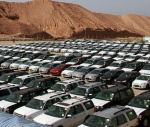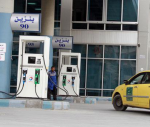You are here
Apocalypse when?
Aug 08,2021 - Last updated at Aug 08,2021
CAMBRIDGE — In his elegiac memoir The World of Yesterday, which he wrote while in exile from the Nazis, the Austrian writer Stefan Zweig observed that most people cannot comprehend the prospect of catastrophic changes in their situation. Things can get incrementally worse for a long time without prompting a reaction. Once catastrophe strikes, it is too late to act.
Dramatic changes are occurring in our times, too, and we must hope that it is not yet too late to address them. Unfortunately, sufficiently urgent, coordinated, and decisive action will likely be difficult to mobilise when most of us, like the proverbial slowly boiling frog, perceive change to be incremental. So, it is worth asking what we might be facing if the worst happens.
Climate change-induced weather events are one obvious type of catastrophe. These could render uninhabitable large, densely populated parts of the planet, and it might already be impossible to avert large-scale population movements stemming from them. Many climate victims might seem far away, tiny Tuvalu in the Pacific is frequently portrayed as one of the first likely casualties. But recent weather events point to areas closer to global centers of power, such as Florida, the cities of China’s Yellow River valley, Seattle and New Delhi, either flooding or becoming too hot for humans.
Governments and international organisations should therefore start preparing for the prospect of millions of future climate refugees. According to the United Nations, there were 79.5 million displaced people globally at the end of 2019, the biggest number it had ever recorded, and more than at any time since the huge, forced migrations in the aftermath of World War II. Continued global warming means that number will likely increase.
Worse still, climate change, combined with biodiversity loss and soil degradation, threatens to cause a downward spiral in agricultural productivity. That would undo many of the gains of the Green Revolution that has enabled the Earth to sustain its 7.9 billion people.
As such, we need a new Green Revolution that goes beyond genetic modification of crops to encompass social and economic changes such as land reform, altered diets, and different business models. Failure to change current intensive, industrialised farming practices rapidly and at scale will result in crop failures and increasing hunger. For net food importers like the United Kingdom, the post-war plenty we have grown used to could become a thing of the past. But how are we to bring about the system change needed when, despite the pandemic, supermarket shelves are still full?
Another type of disaster related to ever greater human incursions on nature is the increasing frequency of zoonotic diseases that leap from animal hosts to humans. The extraordinary COVID-19 pandemic has driven this message home to the world, Ebola, SARS, and MERS were earlier warnings, and there are more such health crises to come. The period in history when infectious disease seemed to have been tamed is likely over. Similarly, the spread of resistance means some old infection battles have restarted. And if an even more virulent novel coronavirus emerges in the next few years, will we be prepared for another upheaval like the one we have all experienced over the past 18 months?
These kinds of events will put immense pressure on existing political systems, whether they be democracies or authoritarian regimes. Today, only a Panglossian observer would foresee an imminent return to the trend toward liberal democracy that characterised the latter part of the twentieth century. On the contrary, the need to deal with more emergencies could make the West more authoritarian. And the retreat from multilateralism to geopolitical clashes could accelerate, fueling a vicious cycle that makes it ever more difficult to tackle global problems.
Perhaps these gloomy thoughts are merely a sign that their author needs a summer holiday. But with Zweig’s warning in mind, it would do no harm to consider the what if. What if this is the time for large actions, not small ones? What would they be?
The UN Food Systems Summit in September and the UN climate conference (COP26) in Glasgow in November are obvious opportunities to move from incremental reform to significant progress. But averting all of these potential catastrophes requires system change; they are what are known as “wicked problems”, for obvious reasons. And it is difficult to get people to tackle them in concert, especially when most people currently perceive only a slow deterioration.
The challenge is really one of leadership: a small number of global political leaders could agree to address some of these wicked problems in the common interests of all. But at the same time, universities and research institutes need to dismantle the disciplinary silos and career structures that reward only narrowness and incremental discovery. Climate scientists need to integrate their work with that of political scientists, and epidemiologists should do the same with economists. Analysing the risks of catastrophe creates the obligation to act now.
Diane Coyle, professor of Public Policy at the University of Cambridge, is the author, most recently, of “Markets, State, and People: Economics for Public Policy”.













